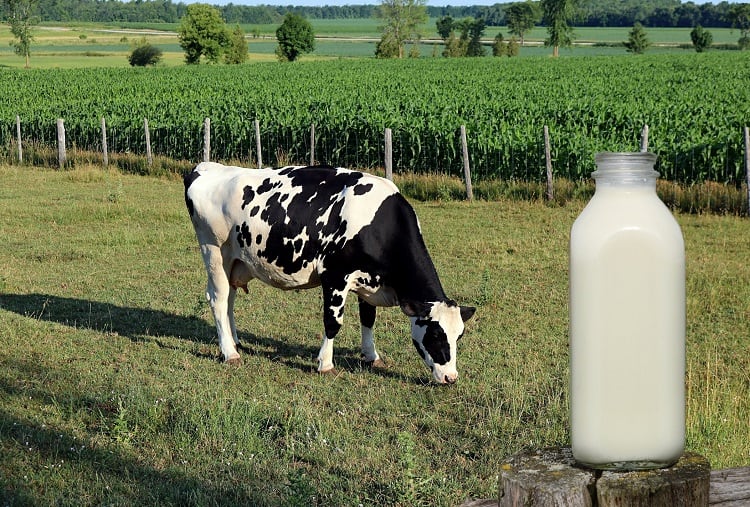The concept behind Provenance stemmed from Baker’s own interest in supply chains and how products are made. “I was trying to make the shift to be a more ethical consumer, trying to find out more information about the products I was buying. It was really difficult,” the tech entrepreneur recalled.
“All the data is sitting there, in the supply chain, but the shopper doesn’t have access to it. Provenance’s vision and mission is to help great brands make their supply chains transparent to us as shoppers.”
The company has developed a platform that allows businesses to connect data from different departments within their own organisations as well as suppliers and external parties. It allows businesses to store proofs to prove who suppliers are and what impact they have. Provenance also works with third parties to validate this data.
“With the larger companies, we are often doing a lot of work on internal transparency – helping them understand internally what is going on in their supply chain and their impact.
“Businesses can then take all of that data and publish it. It could be through their own domains, a web page on their site, a plugin for their e-commerce page, or even a plugin for their retailer’s e-commerce page,” Baker explained.
More than 300 businesses now use Provenance. These are made up of a ‘long tail’ of SMEs, the likes of alt. milk producer Rebel Kitchen and farm-to-consumer retailer Farm Drop. The start-up is also working with the likes of Unilever and Pernod Ricard.
‘Consumers want brands that share their values’
Baker believes that transparency is more than just a watchword for the food and beverage industry. “We place a lot of trust in brands. They dictate what we buy, where we go, what we do. Today we place trust in them for some rational reasons, like quality of product, word of mouth. But sometimes for lots of irrational reasons, like advertising or marketing. For me, the future of a brand is around true stories and true impact. Increasingly consumers want to buy into a brand that shares their values.”
“Transparency is important because it enables brands to communicate the reality behind their brand and products, so consumers can see if they match their values.” – Jessi Baker
So what values are most important? For Baker, the answer to this will vary from person to person. But there are some clear common threads.
“We have some challenges to face as humankind, the big one being climate change. A huge amount of climate change is caused by consumption and commerce. An important value is environmental impact. Particularly carbon, but that extends to other things like biodiversity, water usage. There is a stark difference between how those vital elements are treated from business to business.

“It is our right to know as consumers what we are essentially funding, the impact behind the products we buy.”
Alongside environmental impact, Baker sees social impact as an important area for consumers. This extends to wages and working conditions as well as issues like gender parity.
“It depends a lot on what you believe but there are some basic standards that, if we saw they weren’t being met, we would all be horrified and wouldn’t buy the product.”
‘It doesn’t have to be geeky’: Transparent data tells ‘beautiful’ stories
While there is growing interest in how products are made – particularly among millennial or gen z consumers – Baker explained that Provenance doesn’t want to make consumers ‘work hard’ to delve into the detail.
“I don’t think there is a huge desire [for the fine detail]. People do want to know more, there is definitely an appetite. But we don’t necessarily want consumers to have to work harder.”
While she says there are always ‘a few people that can be bothered to look under the hood’, primarily Baker believes that brands and retailers will be the primary conduit for these messages.
“With e-commerce, if you can use that data to create search functionalities or filters - ways in which it doesn’t become arduous - there is huge, huge potential,” she suggested.
Likewise, when marketers tell a brand’s story it is vital that any claims are backed up with verifiable facts.
“Wrap transparency into storytelling, the brand narrative the brand purpose. Supply chain transparency doesn’t have to geeky and just for the ethical nerds. It can be part of a beautiful story.”
Tipping to scale: ‘Transparency isn’t a question anymore’
Currently, Provenance is a business-to-business proposition. However, in the future, Baker believes the group could also become a mark of trust in consumer communications.
“Our plan is to follow the same route as other SAS start-ups. So, Trust Pilot built a reviews engine but also built a consumer brand to help you trust those consumer reviews because it has more integrity than consumer review software. That is what we want to achieve at Provenance.
“We are trying to build a b-to-b to-c proposition, so the data being served up by Provenance and impact assessments that have integrity can be uniform and easy to recognise across different retail environments. That will be a big growth area for us.”
With annual revenues of £1m and a current staff of 23 the company is reaching tipping point as it moves from start-up to scale-up.
“It is quite terrifying really. The transition from being a small start-up trying to validate everything to building the scale of a software business and making it work well for large enterprises is quite hard,” the chief executive revealed.
But, while Baker says the experience is ‘a learning curve’, she is upbeat on the company’s ability to deliver against its long-term prospects, which are leaning into a trend that she only expects to gain stream.
“Transparency for brands in food and drink isn’t a question anymore. It is here. People are demanding it. Regulations are pointing in that direction. Very soon lots of food and drink products won’t have much choice but to open up data on their supply chain impact. For us, it is making sure we have scale to meet that need.”
Provenance participated in FoodBytes! by Rabobank in London in 2018.
FoodBytes! by Rabobank is a pitching competition for early stage start-ups, providing them with mentoring and networking opportunities with investors and corporates.
Reflecting on the experience last year, Baker said: “It is really good to connect with different businesses, we made a bunch of contacts at the event. It is great for a start-up to have a place where they can go and rub shoulders with a bunch of senior people from food businesses.”
FoodBytes! London 2019 will take place on 6-7 November. The platform identifies innovations with the potential to disrupt the food industry and supply chain. Areas it focuses on include sustainable farming, packaging, traceability solutions, environmentally-friendly ingredients, food waste reduction and the latest sustainable CPG food start-ups.



